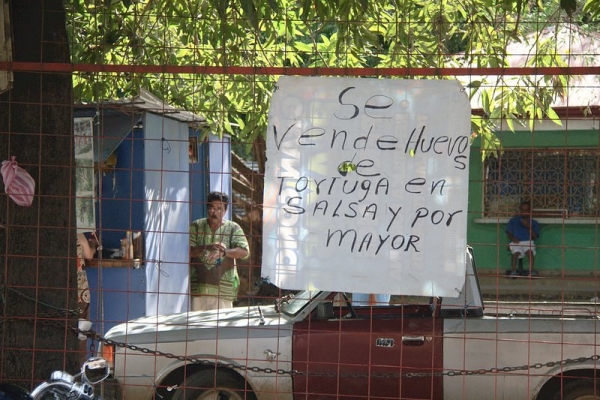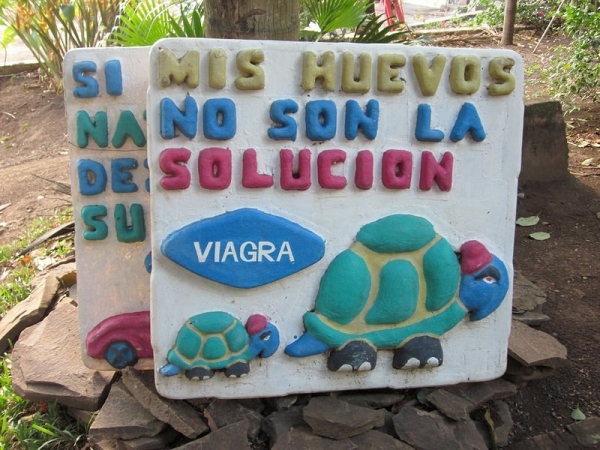Here’s a sign to get your blood boiling
For those lacking in Spanish language skills, it says “For sale: Turtle Eggs in tomato sauce and more”
Appalling. That photo was taken in Playas del Coco, Costa Rica. The sign was located on the main street in front of a small stand where they also sold ceviches. Every time I walked b , I just couldn’t believe they had such a bold sign right out in the open. It just seemed so wrong.
This is more they type of sign I was expecting to see
Again for those lacking in Spanish it says, “My eggs are not the solution”
I’m not totally naive – I knew that there was a black market for turtle eggs, just as there’s a black market for everything that’s supposed to be an aphrodisiac. Including Viagra. I just didn’t expect to see it so blatantly advertised.
Then a funny thing happened. I sat down to write a post damning all of Costa Rica for their trade in turtle eggs, and I came across this article: http://www.hoax-slayer.com/costa-rica-turtle-eggs.shtml
Turns out harvesting turtle eggs isn’t all bad
To sum it up:
- Turtle eggs are legally harvested on the Ostional beach in Costa Rica as a conservation project which began in 1983
- The Olive Ridley Turtle lays eggs on this beach in groups as large as 300,000 turtles at one time (depending on the time of year)
- The turtles that arrive to the beach later on dig up and smash the eggs that were laid by the early arrivals
- All those smashed eggs breed fungus and bacteria which greatly reduce the amount of hatched turtles
- Up to 1% of the early arrival eggs are harvested
- Harvested eggs are legally sold at regulated prices below that of a chicken egg to discourage poaching
- This legal harvesting has been shown to increase the overall hatch rate
- A formal co-management model between the University of Costa Rica, a community organization called ADIO, and the Ministry of Natural Resources (MINAET) in Costa Rica, was installed to regulate the program. They meet every 5 years to review the program.
Of course this conservation project also has its critics. One of the biggest criticisms being that the supply chain is poorly controlled, and these legally harvested turtle eggs could present a cover for poachers to harvest and sell eggs illegally.
Things aren’t always so black and white. What they’re doing seems to be working, and I guess that’s a good thing. Personally though, I’m not about to run out and eat turtle eggs. They fall into that too darn cute to eat category.






